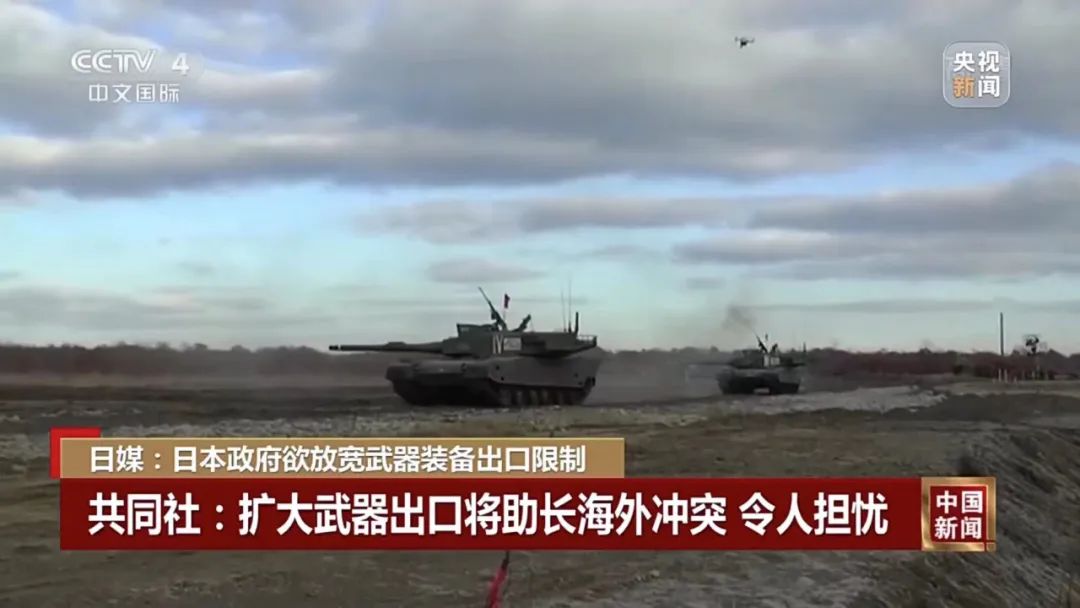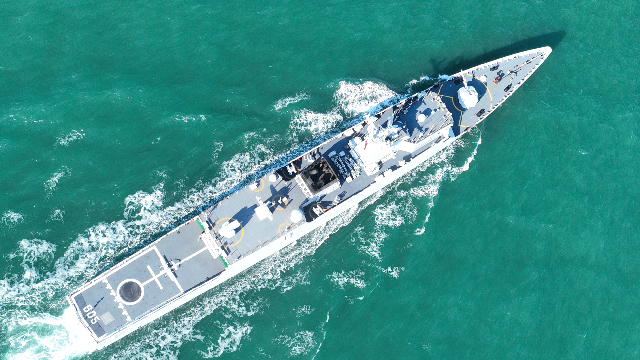
According to Japanese media reports, in view of the current situation of the conflict between Russia and Ukraine, the Japanese government is considering relaxing rules for exporting defense equipment. In this regard, military observer Zhou Weizheng believed that it is worthy of vigilance for Japan's ambitions to further break through restrictions on the export of weapons and equipment and seek "military normalization" under the guise of the Russia-Ukraine conflict.
According to Zhou Weizheng, there are three reasons for the Japanese government's attempt to liberalize the long-standing ban on arms exports. First, Japan intends to prop up the development of its defense industry. The ban on Japan's arms exports and the limited quantity of weapons purchased by the Japan Self-Defense Forces (JSDF) have jointly pushed the production costs of weapons and equipment in Japan way up, which in turn has restricted its development of defense industry. Second, Japan aims to expand its international influence and eventually realize its own political ambitions by way of promoting arms exports. Third, Japan may achieve its goal in quest of the so-called "military normalization" by the move. In recent years, Japan has tried to break through the ban on arms export. In approaches like “disguised displacement” and “sausage slicing”, Japan has secretly replaced rigid clauses with soft conditions that can be interpreted at will and has been revising its pacifist constitution step by step. In all, Japan tries to deceive the international community.
Zhou pointed out that once the rules for exporting weapons and equipment get eased, Japan may consider exporting large equipment such as fighter jets and missiles to any other country that has signed the Agreement on Transfer of Defense Equipment and Technology with it. This means that a total of 12 countries including Australia, India, and some European and Southeast Asian countries will become its importers. On the other hand, the US and some European countries themselves are major exporters of weapons and equipment. They will certainly not import weapons from Japan, or allow Japan to intervene in their own arms markets. Therefore, potential customers for Japan may include some Southeast Asian countries such as Vietnam and the Philippines.
At present, due to export restrictions, Japanese military enterprises have been facing overcapacity, and its R&D and production of weapons and equipment have fallen into a vicious circle of "high investment leads to high price, which leads to higher investment". Once the restrictions are lifted to allow other countries to purchase arms from Japan, the production costs will be greatly reduced, with more profits further invested in the R&D of more advanced weapons and equipment. In this way, Japan's military strength will readily soar, bringing new strikes and challenges to regional peace and world pattern.
Zhou believed that it is absolutely no coincidence that Japan proposed to ease restrictions on exporting defense equipment just after US President Joe Biden finished his visit to Japan. Just manipulated and incited by the US from behind, Japan tends to be highly cooperative in implementing the "Indo-Pacific Strategy". In the past, the US employed various means to suppress Japan's military development, while at present when falling short of strength and power in East Asia, the US takes action to ease its restrictions and push Japan to the forefront to help it maintain its hegemony in the region.
If Japan continues to deviate from the path of peaceful development, rampantly expanding its military strength and threatening regional security, it will be bound to suffer consequences again. Japan is sure to get burnt if willing to act as a pawn in the US "Indo-Pacific strategy".
Editor's Note: This article is originally published on military.cnr.cn, and is translated from Chinese into English and edited by the China Military Online. The information, ideas or opinions appearing in this article do not necessarily reflect the views of eng.chinamil.com.cn.









